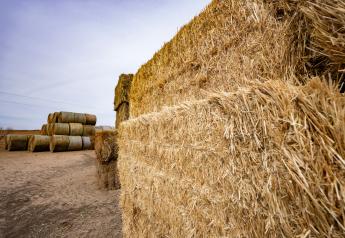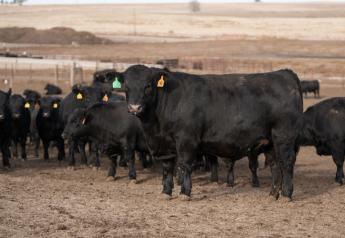Open Season: Taxidermist and Deer Processor Defeats Government Intrusion
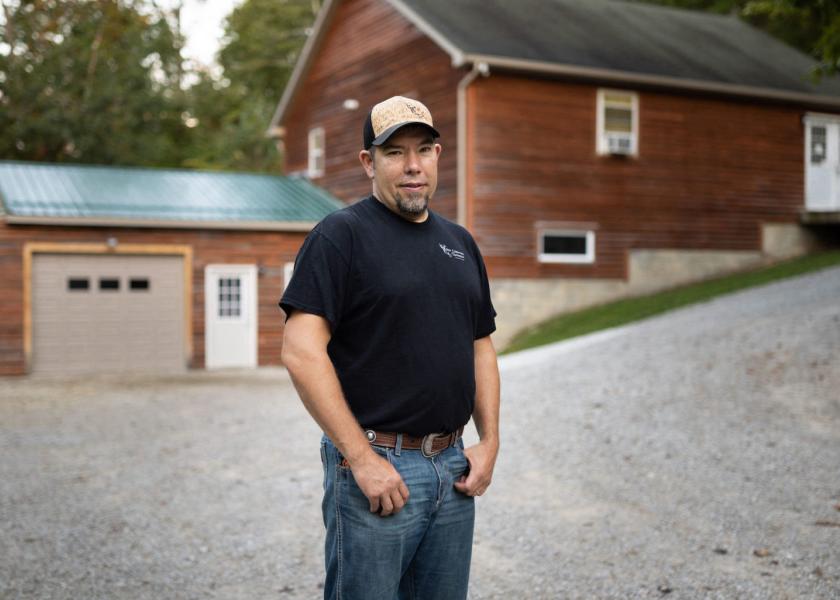
When Jeremy Bennett denied wildlife officers entry to his private business for a warrantless inspection, he was prosecuted. Despite committing no crime, or being under suspicion of an illegal act, Bennett faced a fine and the possibility of seven months in prison.
Owner of a taxidermy and deer processing business, Bennett sued for breach of the Fourth Amendment, and his case forced the state to abide by the Bill of Rights.
“What the government tried to get away with on my property shocks people, but this type of abuse of power consistently happens,” Bennett says. “If you’re a landowner, business owner, farmer, or concerned citizen, you must say something. It’s never the easy path, but it’s the right path to protect our freedoms.”
Something. Anything. Everything.
Surrounded by the sportsman’s paradise of Hocking County, Ohio, roughly 50 miles southeast of Columbus, Jeremy Bennett operates a taxidermy and deer processing shop built by his own hands in 2006, adjacent to a home shared with his wife and five children.
A self-taught bootstrapper, Bennett turned a hobby into a career—hunting to taxidermy to processing. “I grew up in farm country,” he explains. “My dad had a small hog operation and my grandparents had cattle. It was natural for me to get into taxidermy because the outdoors and animals were my passion. I’m so grateful for the opportunity to work in this field and I have the most wonderful customers in the world.”
Bennett’s two-story business—New Creations Taxidermy and Deer Processing—features processing on the bottom floor and taxidermy on the top floor. Both floors are further divided into front and back rooms. Front rooms for customer interactions and back rooms for work and employees, emphasized by doorway signage: EMPLOYEES ONLY BEYOND THIS POINT. NO PUBLIC ACCESS.
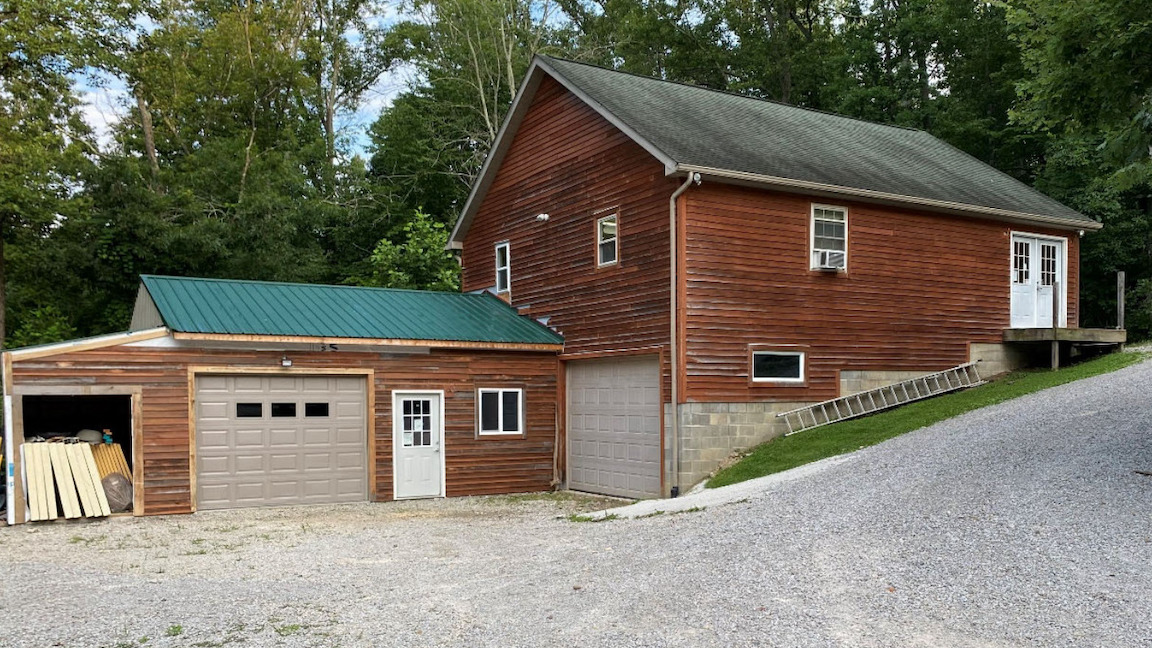
Customers visit by appointment, and Bennett’s business division is seasonal. Deer processing runs from late September to January; taxidermy stretches from February to September. When one floor of Bennett’s shop is open, the other is closed.
He runs a highly reputable, tight ship. In Ohio, taxidermy and deer processing do not require a license. Neither taxidermy or deer processing is regulated by the state—except for the requirement that proprietors keep “records showing the dates when [any] wild animal or parts thereof were received, and when the same were disposed of, and the name and address of the owner of the wild animal or parts thereof, and the state or province from which the wild animal or parts thereof were taken and if applicable, the official tag or seal number or certificate of ownership number.”
However, starting in 2011, Ohio Department of Natural Resources (ODNR) wildlife officers entered Bennett’s shop and began conducting extensive and intrusive inspections. “I’d always had a good relationship with wildlife officers and had no problem in past inspections,” Bennett says, “but in 2011, they seemed to come looking to find something—anything or everything—wrong.”
Presumed Guilty
According to the Ohio Administrative Code, ODNR wildlife officers had the authority to enter taxidermy and deer processing establishments “at all reasonable hours and inspect the records and premises where operations are being carried on.”
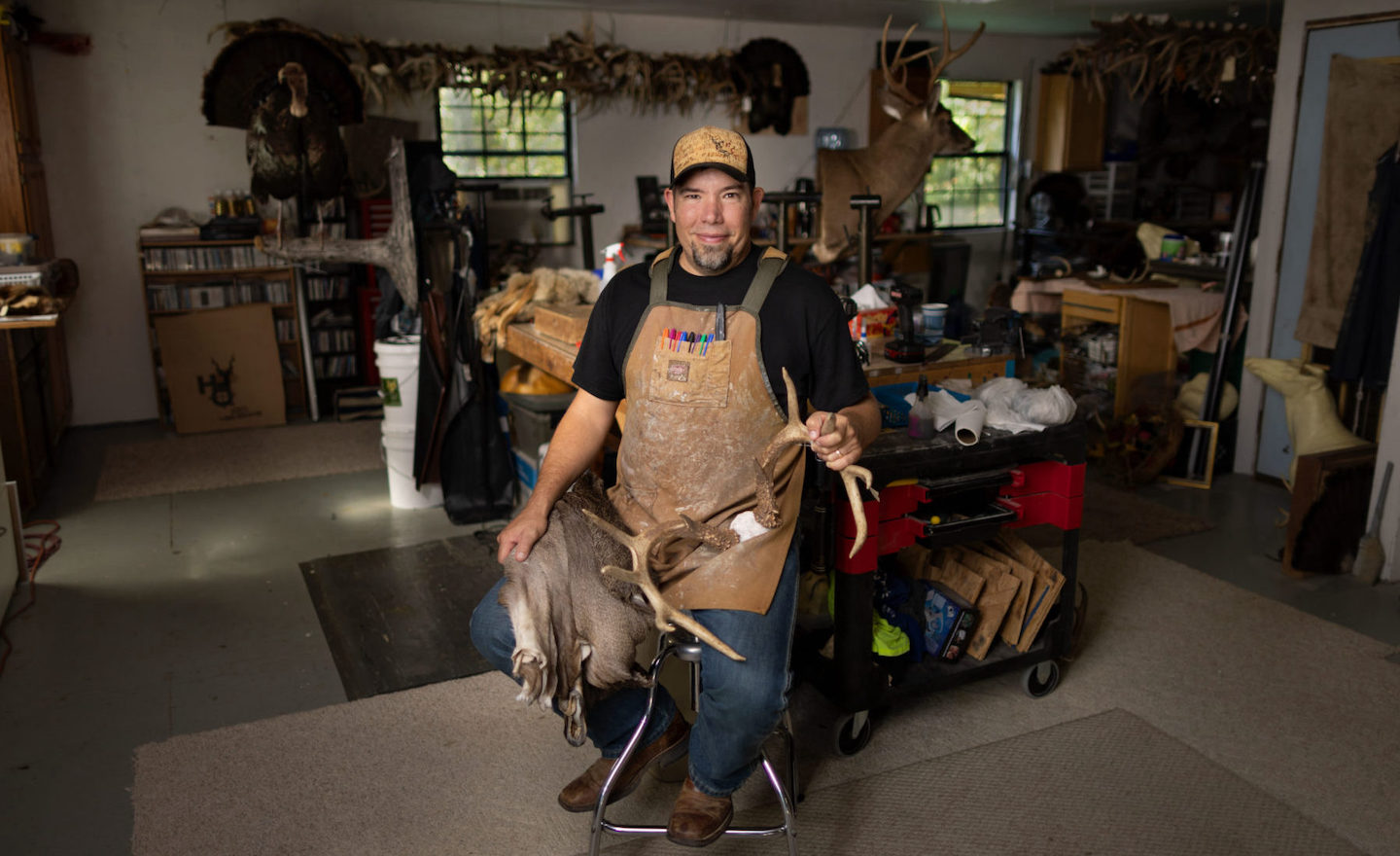
The code required no search warrant or consent, and it did not stipulate frequency, duration, or scope of inspections—the inspections were open-ended and officers’ powers were unlimited.
Further, by code, any effort by a business owner to “deter or attempt to deter a wildlife officer” from conducting a warrantless, suspicionless inspection was a first-class misdemeanor and could result in a 180-day jail sentence and $1,000 fine.
“From 2011, the inspections started lasting two, three, and four hours,” Bennett describes. “It was genuinely unsettling and got worse—and worse.”
From Bennett’s 2021 civil complaint against ODNR: On March 25, 2015 … Defendant Dodge (wildlife officer) entered Jeremy’s shop without advance notice and declared that he would be performing a records inspection. The inspection took about three hours. During that time, Defendant Dodge walked around the employees-only areas of Jeremy’s shop, looked through Jeremy’s business papers, opened cabinets and drawers, and explored Jeremy’s coolers and freezers.
(ODNR did not respond to Farm Journal questions regarding Jeremy Bennett’s complaint. ODNR did not respond to Farm Journal questions regarding warrantless searches.)
The complaint details another inspection on March 13, 2016: Defendant Dodge entered Jeremy’s shop without advance notice to perform a records inspection. He did not knock or ask permission before entering; instead, he watched Jeremy’s children enter the shop and followed them inside.
Jeremy first became aware of Defendant Dodge’s presence that day when Dodge entered the back (employees-only) room of Jeremy’s taxidermy area while Jeremy was in the middle of working on a mount. Rather than greet Jeremy, Defendant Dodge started opening cabinets and drawers in Jeremy’s private workspace.
During the March 13, 2016, inspection, ODNR Wildlife Officer Christopher Dodge, according to Bennett, made a startling assertion. “The officer was going through my things and I asked him what he was looking for and if I could help find it,” Bennett recalls. “He told me, ‘I’ll let you know when I find it.’ I answered back, ‘What is that supposed to mean?’ and the officer said, ‘Everybody does something illegal. I just have to find out what you’ve done.’”
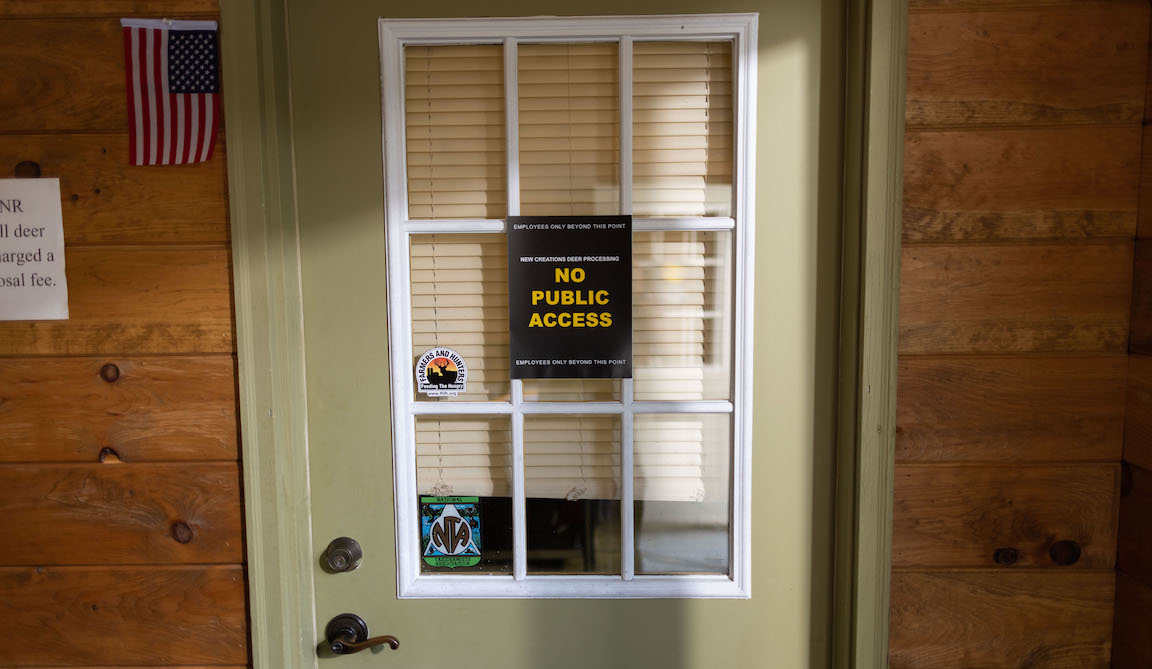
“That’s the most chilling thing to hear from a government agent,” Bennett says. “Those words have the power to destroy your business and life.”
According to the complaint, ODNR took almost five hours to complete the March 13 inspection: During that time, Defendant Dodge walked around the employees-only areas of Jeremy’s shop, looked through Jeremy’s business papers, opened cabinets and drawers, and explored Jeremy’s coolers and freezers.
At one point, Defendant Dodge removed all the taxidermy items from every freezer and laid the frozen packages all over the floor. By the time Dodge finished his inspection, the items were so disorganized that Dodge was unable to put them back where they belonged—so he told Jeremy to do it himself after the inspection was over.
A Dec. 9, 2020, inspection was the final straw for Bennett. Roughly one hour into the inspection of the deer-processing shop, ODNR officers Dodge and Ben Smith requested access to Bennett’s upstairs taxidermy business.
“It was the heart of deer-processing season and I was running full-steam—so busy. The taxidermy area was closed, literally shut down. I didn’t want them staying for hours and hours like in the past so many times and taking everything apart. This had gone on for a whole decade. I told them to come back and we’d have that part of the building open again in January. They never gave me any indication that I was breaking the law by telling them no.”
Three months later, on March 24, 2021, ODNR Wildlife Investigator Kirk Kiefer delivered summonses to Bennett’s shop, declaring prosecution for two misdemeanors. One, failing to allow an inspection, and two, deterring a wildlife officer from duty.
Kiefer, according to the complaint, said to Bennett: The regulation is, if it’s a reasonable time, you have to allow that [inspection] … It’s called like an administrative inspection. [Dodge] has the authority by the way the laws are to, in essence, look anywhere he wants.
Kiefer continued: The problem I’m trying to address is that when [Dodge] wanted to come up here, you should have just let him. By law, you have to. Hunting, fishing, trapping, it’s all, it’s been through the Supreme Court, it’s all [a] highly regulated industry, is what they refer to it as.
However, Kiefer’s representations to Bennett were false, explains Joshua Windham, an attorney with Institute for Justice. “Mr. Kiefer was referring to something called the ‘closely regulated industries’ exception to the warrant requirement—a Supreme Court rule that allows warrantless inspections of certain extensively regulated and inherently dangerous businesses. The Supreme Court has never held that taxidermy, deer processing, or even hunting fall within this exception. Nor could it: Ohio doesn’t regulate taxidermy or deer processing at all, and nothing about them is inherently dangerous. ODNR’s warrantless inspections of Jeremy’s shop were totally unjustified.”
When Bennett asked if he could decline an ODNR inspection, Kiefer responded: If it’s a reasonable time, you can’t. You’ll potentially face a charge like this.
Bennett pled no contest. He was found guilty on the first charge of refusing an inspection and fined $150. The second charge was dropped.
ODNR had successfully prosecuted Bennett for refusing to give consent to the government.
“I was stripped of my rights and the whole thing was crazy,” Bennett says. “It makes a person feel dark and alone, and I kept asking, ‘Can they really do this? Does anyone care?’ I wanted to fight back and then I ran into Institute for Justice and the best defense tool out there—the Constitution.”
Backpedaling
The Institute for Justice (IJ), a national legal advocacy group providing pro bono representation, helped Bennett launch a lawsuit against ODNR.
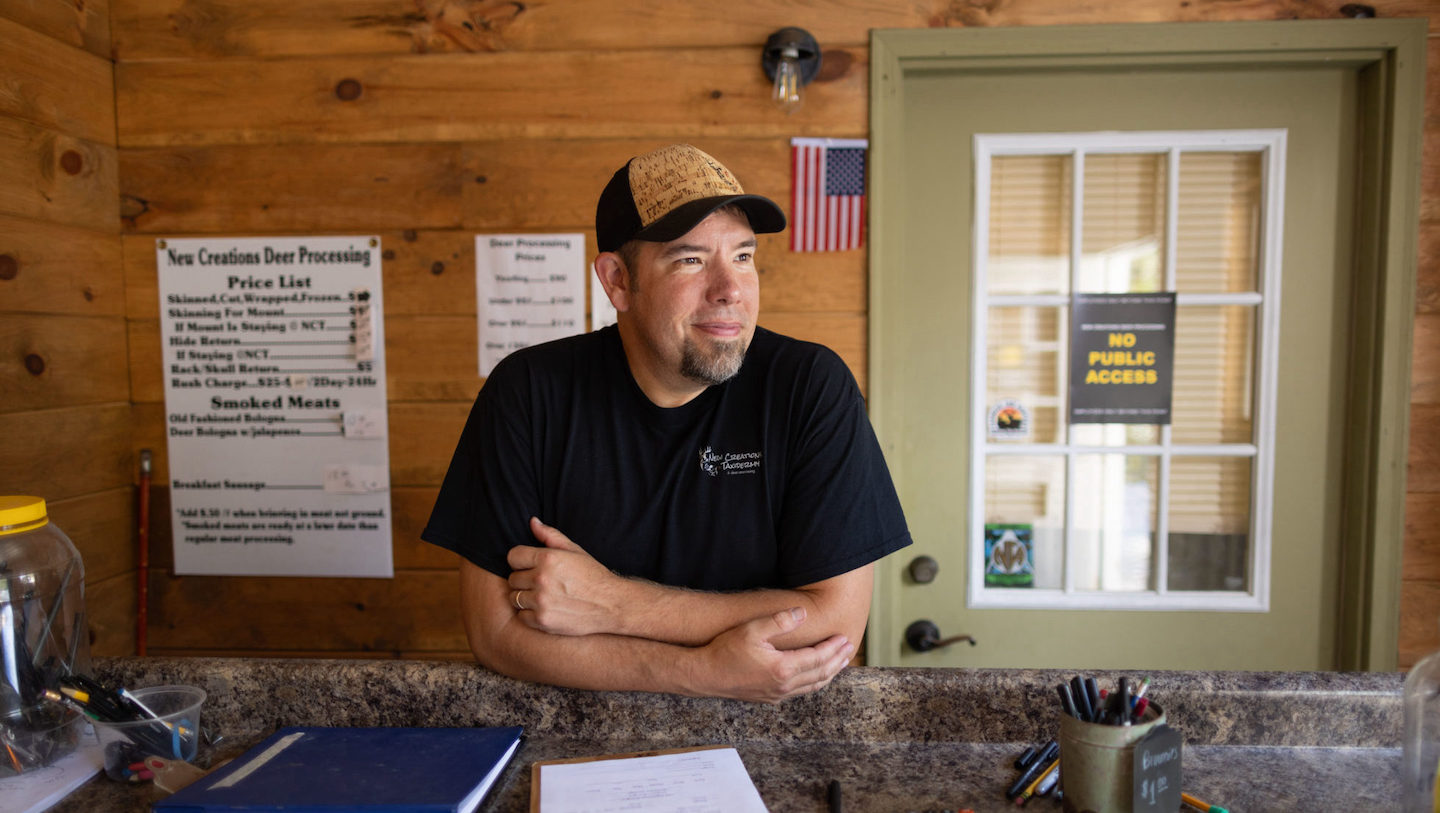
“The ODNR officers never came to Jeremy’s shop with any suspicion he was committing a crime or violation,” said Windham. “They were just checking to check, yet they rooted around for hours, opened cabinets and drawers, pulled meat out of freezers, and more. That’s not just intrusive—it’s the definition of treating somebody as guilty until proven innocent.”
Windham emphasizes an additional constitutional violation committed by ODNR. “They prosecuted Jeremy for politely asking them to come back later. Even if that counts as a ‘refusal’ to give consent, though, the Fourth Amendment prohibits the government from prosecuting people for standing on their constitutional rights.”
In November 2021, Bennett, backed by IJ, filed a lawsuit in U.S. District Court—a Fourth Amendment challenge.
With Bennett’s timeline and case facts on record, ODNR backpedaled and changed the regulation to allow for consent refusals.
“ODNR got caught with its hands in the cookie jar,” Windham says. “They didn’t want to go to court and let a judge see what they’d been doing. So they changed the regulation to comply with the Constitution. They added language that empowered taxidermists and deer processers to refuse consent and demand that the government come back with a warrant. That change never would have happened if Jeremy hadn’t stood up for his rights.”
ODNR also agreed to pay Bennett $5,000 for his prior legal expenses. “This was never, never about money, and $5,000 didn’t even cover all the expenses of the private attorney I had to hire to defend myself against that prosecution before IJ got involved,” Bennett says. “This was about holding the government accountable—otherwise our basic freedoms would continue to erode.”
Price to Pay
A regulation printed in an administrative code does not create open-ended authority for the state.
“Jeremy Bennett was working hard, paying taxes, bothering no one, and breaking no laws, yet the government treated him as guilty until proven innocent,” Windham adds. “Then, when he dared to ask state officials to come back to his business when he was open, he was prosecuted. All of that turned the Fourth Amendment on its head.”
What advice does Bennett have for others? “Ultimately, we wanted this in court so precedent could get set, and it didn’t get that far, but the regulation did get changed. I encourage people to speak up when they see or experience injustice. That is our responsibility as citizens. If you feel like the government is violating your constitutional rights, go with your gut. There’s always someone out there like IJ who knows more. You can find them and they can help.”
Bennett insists there is a price for silence. “There’s a price to pay if you fight,” he concludes. “There’s a bigger price to pay if you don’t.”
For more from Chris Bennett (cbennett@farmjournal.com or 662-592-1106), see:
Corn and Cocaine: Roger Reaves and the Most Incredible Farm Story Never Told
American Gothic: Farm Couple Nailed In Massive $9M Crop Insurance Fraud
Priceless Pistol Found After Decades Lost in Farmhouse Attic
Cottonmouth Farmer: The Insane Tale of a Buck-Wild Scheme to Corner the Snake Venom Market
Tractorcade: How an Epic Convoy and Legendary Farmer Army Shook Washington, D.C.






